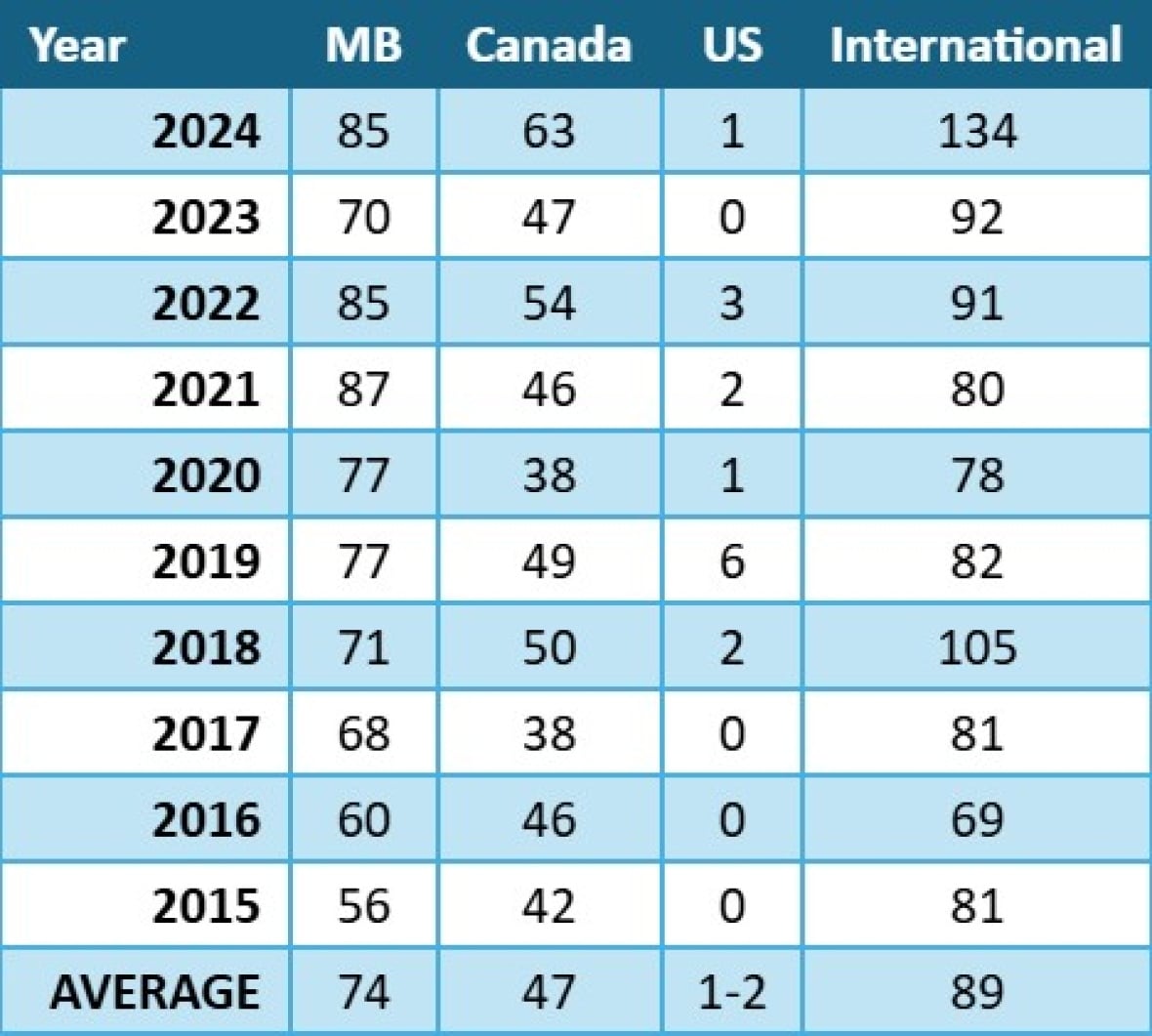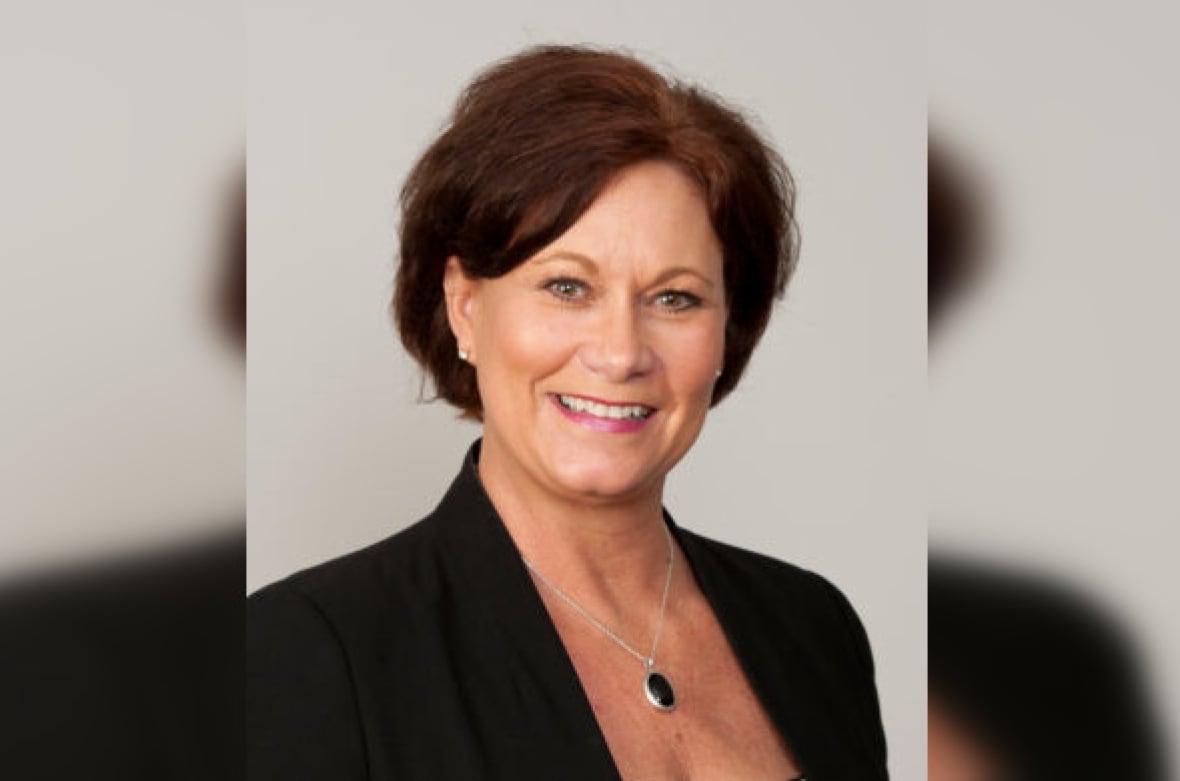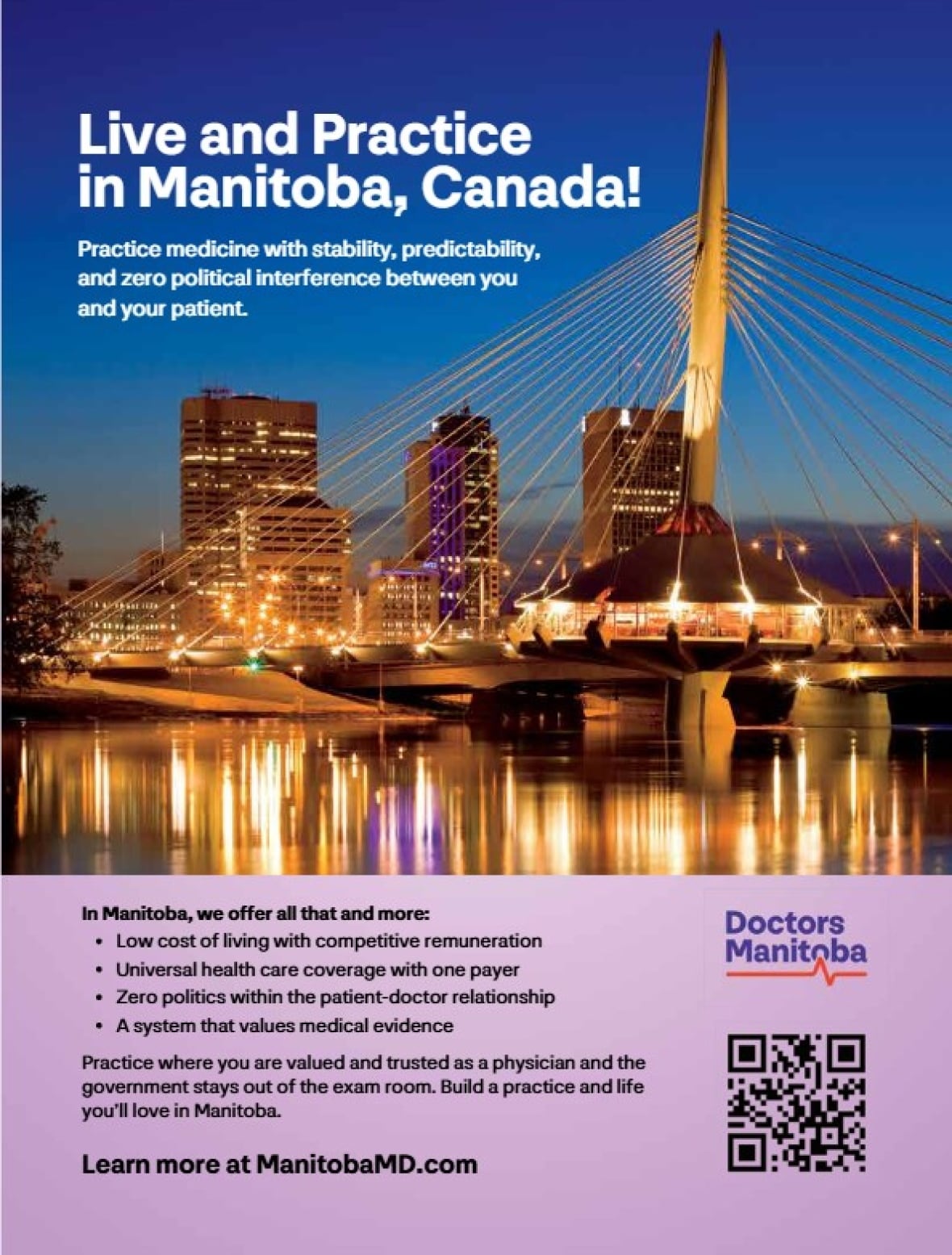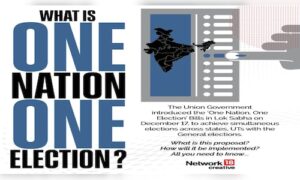A recruitment drive to deal with Manitoba’s doctor shortage is taking aim at the United States and physicians who might be concerned about Donald Trump’s incoming presidency.
Doctors Manitoba says it has placed ads in several U.S. states, particularly those where the state government has targeted issues like abortion or gender-affirming care.
“Practice with stability and certainty, where you are valued and trusted as a physician and the government stays out of the exam room. Build a practice and life you’ll love in Manitoba,” says the headline on a recruitment website.
A print ad highlights Manitoba’s health-care system as one “that values medical evidence” and enables doctors to “practice medicine with stability, predictability, and zero political interference between you and your patient.”
Data from the College of Physicians and Surgeons says Manitoba recruits one or two U.S.-trained doctors per year, compared to about 90 internationally trained physicians per year from other countries, Keir Johnson, Doctors Manitoba’s director of strategy and communications, said in an email to CBC News.
“Doctors Manitoba monitors these trends closely, and we’ve long thought the U.S. is an untapped market for recruitment,” he said.

Doctors Manitoba CEO Theresa Oswald, a former Manitoba health minister, said the physician advocacy organization has been working in partnership with university professionals, the College of Physicians and Surgeons of Manitoba and the provincial government to find ways to address the doctor shortfall.
“It isn’t traditionally the role of Doctors Manitoba to recruit physicians, but Manitoba finds itself in an unfortunate situation, and that we have, really, the fewest family physicians across Canada per capita and we’re close to the bottom on specialists as well. So this requires an all hands on deck approach, no question about it,” she said.
Manitoba needs 375 to 400 more physicians just to get to the national per capita average, she said.
“We’ve all really committed to find every way that we can to entice physicians to come and find out why it’s great to work in Manitoba.”

But the hard press came as the clouds began forming around the U.S. election, Oswald said.
“We knew that there may be some physicians that might be looking for a different environment in which to work. So we put our heads together with our board of directors and we made the unusual decision to place some ads in a few states.”
She said they zeroed in on medical associations that had been expressing some distress about government overreach or interference.
The recruitment effort began in three states — North Dakota, South Dakota and Florida — where the governments have taken a negative approach to issues “like gender-affirming care, medical assistance in dying and, of course, a woman having agency over her own body and therefore a right to choose,” Oswald said, referring to abortion restrictions.
“But we’re looking at other places where physicians may be feeling that distress about government getting in between them and their patients in the exam room, where honestly, government does not belong.”
The first ads appeared in medical association journals and other publications for physicians within days of the Nov. 5 election.

The phone lines at Doctors Manitoba haven’t been ringing off the hook just yet, Oswald said, but the organization doesn’t intend to be the singular pipeline for physicians who are interested in relocating.
“The government of Manitoba has a health-care resources recruitment office. Manitoba Health has been long active in this game, and so we will really be redirecting the next steps of this, which of course would include immigration, licensure and so forth, to the proper authorities,” she said.
Doctors Manitoba is really just trying to pique interest by pointing out things like the low cost of living, natural attractions like the many lakes, opportunities for academic and research roles with the University of Manitoba, and universal health coverage, which means a single payer and fewer insurance headaches for physicians to deal with, Oswald said.
“All of the things that are great about Manitoba, we want to get that front and centre in the minds of U.S. physicians who might be considering making a move and then let the proper authorities in Manitoba take over from there,” she said.
“We really see ourselves as only a piece of the broader puzzle, but we don’t expect government to do everything. We want to be a good partner and make sure that every avenue is being pursued here.”



